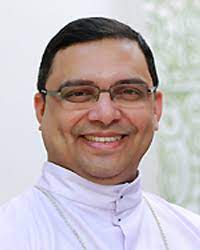By Jose Kavi
New Delhi, June 19, 2023: The Syro-Malabar Church, a Kerala-based Oriental rite in the Catholic fold, has welcomed the decision of the government in neighbouring state of Karnataka to repeal a law prohibiting religious conversions.
The decision “deserves appreciation by all those who stand for democracy and human rights” as it is “a progressive step towards guarding the secularism of the country,” says a press release from the Church’s Public Affairs Commission.
The June 18 press release regrets that the anti-conversion laws have been often used to harass and discriminate against religious minorities, violating the spirit of the Indian Constitution that guarantees citizens the freedom to profess, practice and propagate one’s religion.
Auxiliary Bishop Thomas Tharayil of Changanacherry, convener of the commission who has signed the press note, observes an alarming rise in the incidents of harassment and arrest of Christians and places of worship in several northern and central Indian states under the pretext of implementing the anti-conversion laws.
“Such incidents, which also include misinterpretation of the Church’s centuries old education and health care services and targeting of priests and nuns, instil fear among the religious minorities,” the statement says.
In this context, the Karnataka government’s decision to defend the constitutional right to religious freedom is reassuring, the bishop says.
The Syro Malabar Church, he says, urged all state governments that have enacted such anti-constitutional bills to follow the Karnataka model and repeal them, recognizing the need to protect pluralism and secularism of the nation.
Karanataka’s Congress-led government June 15 decided to repeal the anti-conversion law and proposed to take steps to officially remove it in the state legislative assembly’s next session starting July 3.
The Anti Conversion Bill, also known as the Karnataka Protection of Right to Freedom of Religion Act, 2022, was enacted by the previous Bharatiya Janata Party government, ignoring opposition from the Congress party, the Catholic Church and others.
As many as 12 of India’s 28 have legislation criminalizing religious conversions in various circumstances. Individuals violating the legislation face punishments such as fines and imprisonment. They are Arunachal Pradesh, Chhattisgarh, Gujarat, Haryana, Himachal Pradesh, Jharkhand, Karnataka, Madhya Pradesh, Odisha, Rajasthan, Uttarakhand, and Uttar Pradesh.
The anti-conversion laws share three common features: prohibitions on conversions, notice requirements, and burden-shifting provisions. Each feature is inconsistent with international human rights law’s protections for freedom of religion or belief.
These laws use broad and vague language that can be used to target voluntary religious conversions. For example, Section three of Uttar Pradesh’s Prohibition of Unlawful Conversion of Religion Act, 2021 provides that “no person shall convert or attempt to convert” another individual, directly or otherwise, by “misrepresentation, force, undue influence, coercion, allurement or by any fraudulent means.”
Violations are punishable by prison terms up to five years and a fine of at least 15,000 Indian rupees. Punishments are severe if an individual converts or attempts to convert a minor, woman, or Dalit or tribal.
The anti-conversion law in Haryana prohibits conversion or attempts at conversion “by marriage or for marriage” and concealing one’s “religion with intention to marry.”


The proposal of the newly elected Karnataka Government to repeal the state’s Anti-Conversion Law is a very welcome move indeed. However we must remember that right to propagate one’s religion does not confer one with the right to convert others. This has been made amply clear in Rev. Stanislaus Versus State of Madhya Pradesh 1977 case in the Supreme Court of India. The judgement read: “We have no doubt that it is in this sense. that the word ‘propagate’ has been used in Article 25 (1), for what the Article grants is not the right to convert another person to one’s own religion, but to transmit or spread one’s religion by an exposition of its tenets. It has to be remembered that Article 25 (1) guarantees “freedom of conscience” to every citizen, and not merely to the followers of one particular religion, and that, in turn, postulates that there is no fundamental right to convert another person to one’s own religion because if a person purposely undertakes the conversion of another person to his religion, as distinguished from his effort to transmit or spread the tenets of his religion, that would impinge on the “freedom of conscience” guaranteed to all the citizens of the country alike.”